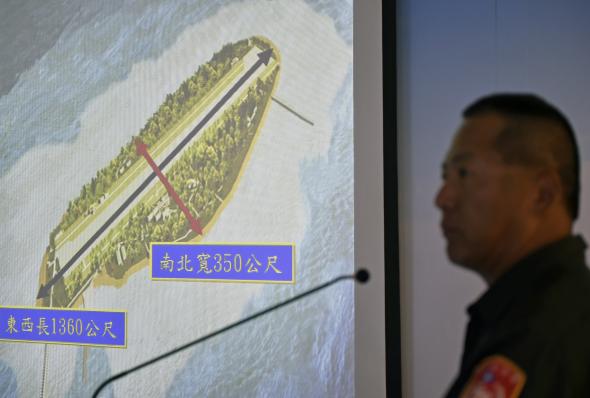-
Tips for becoming a good boxer - November 6, 2020
-
7 expert tips for making your hens night a memorable one - November 6, 2020
-
5 reasons to host your Christmas party on a cruise boat - November 6, 2020
-
What to do when you’re charged with a crime - November 6, 2020
-
Should you get one or multiple dogs? Here’s all you need to know - November 3, 2020
-
A Guide: How to Build Your Very Own Magic Mirror - February 14, 2019
-
Our Top Inspirational Baseball Stars - November 24, 2018
-
Five Tech Tools That Will Help You Turn Your Blog into a Business - November 24, 2018
-
How to Indulge on Vacation without Expanding Your Waist - November 9, 2018
-
5 Strategies for Businesses to Appeal to Today’s Increasingly Mobile-Crazed Customers - November 9, 2018
China demands end to US surveillance after aircraft intercept
Two Chinese fighter jets carried out an “unsafe” intercept of a USA military aircraft on Tuesday over the South China Sea, according to the Pentagon. In 2001, a similar incident occurred where a U.S. EP-3 plane collided with a Chinese fighter jet.
Advertisement
The J-11 fighters came within 50 feet of the U.S. EP-3 Aries aircraft, an encounter that an unidentified Pentagon source characterized as an “unsafe intercept”, The Associated Press reported.
Mr Zhang Baohui, a security expert at Hong Kong’s Lingnan University, said he believed the encounter highlighted the limitation of Cues and shows that Chinese pilots would still fly close to USA surveillance planes if needed.
The surveillance plane conducting routine operations in global airspace and the Pentagon has characterised the incident as an “unsafe intercept”.
Even as U.S. Pacific Command begins probing the incident, China’s Defense Ministry claimed to be “aware of such reports” in its statement.
Tensions have mounted and Washington has accused Beijing of militarising the South China Sea as it transforms contested reefs into islands capable of supporting military infrastructure. They have therefore sent out multiple military patrols close to the islands to test the waters, enraging China.
The US Defense Department contended that the latest “freedom of navigation” operation was undertaken to “challenge excessive maritime claims” by China, Taiwan, and Vietnam that were seeking to restrict navigation rights in the South China Sea.
A highly-contested region, almost $5 trillion in trade passes through the South China Sea annually.
CNN reports that Beijing also insisted its pilots “kept a safe distance throughout” the encounter, “without taking any risky actions”. “We need necessary means and capabilities to defend ourselves, but this has nothing to do with militarisation”, he said.
According to the official, one of the two Chinese military fighters came within 100 feet to the side of the American reconnaissance aircraft at a high rate of speed.
China has denied accusations from the USA that two of its jets intercepted an American spy plane over the South China Sea in what Washington said was an unsafe manuevre.
“We have to understand that claims over a large part of the South China Sea date back a long, long, time ago”, Leung says. How the US will respond further to any change in Chinese strategy remains to be seen.
Furthermore, it appears the country has become even more aggressive as its fighter jets were recently involved in a unsafe interception against the United States. China on the other hand have signed treaties with Taiwan and Vietnam to keep in check US moves and has also eyed Russian Federation in order to counter the Americans.
China, which holds no “excessive claim” of sovereignty in South China Sea, believes in communication and dialogue.
Advertisement
The intercept is also days before US President Barack Obama travels to parts of Asia from May 21-28, which will include a Group of Seven summit in Japan and his first trip to Vietnam.





























